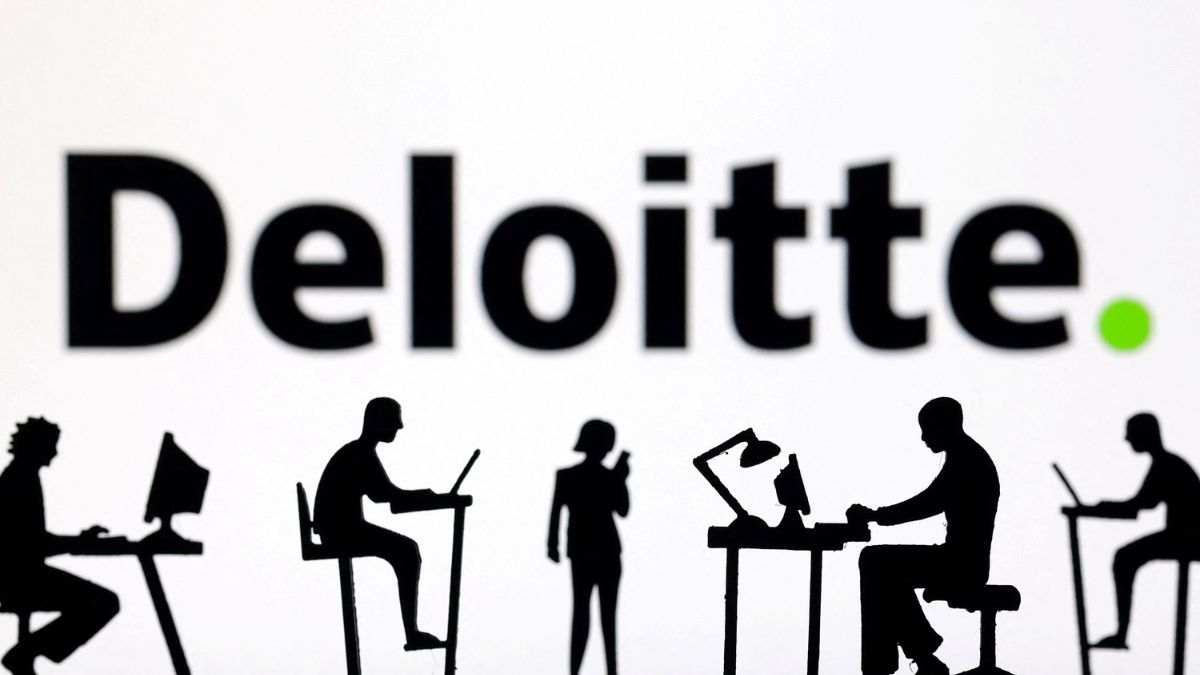Concerns about the use of artificial intelligence in government-commissioned consulting work are in the spotlight after Canadian province Newfoundland and Labrador (NL) became the latest jurisdiction to discover questionable academic sources in a major Deloitte policy report.
This comes only weeks after Deloitte’s Australian arm was criticised for submitting a study containing AI-generated citations.
The Newfoundland and Labrador report in question — a 526-page Health Human Resources Plan published in May 2025 — cost the province close to $1.6 million and was intended to guide policy in a system plagued by shortages of nurses, physicians, and respiratory therapists.
But an investigation by The Independent, a St.-John’s-based news outlet focused on Atlantic Canada, discovered that several references included in the document point to studies that cannot be located in journals, databases, or library catalogues.
Some appear to combine names of researchers who have never collaborated, while others cite material that academics say they never produced.
What the investigation revealed
Newfoundland and Labrador’s Department of Health and Community Services commissioned Deloitte to develop a comprehensive workforce plan aimed at improving retention and recruitment amid persistent staffing pressures.
The previous Liberal government oversaw the project, budgeting nearly $1.6 million for the work, which was delivered in eight payments according to an access to information request later posted online.
The document examined a range of issues relevant to the province’s strained health system — workplace incentives for medical professionals, the challenges of rural recruitment, the expansion of virtual care, and the impact of the Covid-19 crisis on frontline workers.
Its recommendations were expected to inform the province’s long-term strategy for securing enough health professionals to meet rising demand.
However, when The Independent reviewed the report’s hundreds of footnotes and references, at least four proved impossible to verify.
These citations were included to support major policy arguments, including statements about the financial benefits of recruitment incentives and claims about the experiences of respiratory therapists during the pandemic.
The outlet’s investigation revealed:
Citations assigned to papers that have no traceable record.
Academic articles attributed to researchers who insist they never published the material.
References linking groups of authors who say they have never collaborated in the way the report suggests.
A citation pointing to an article supposedly published by the Canadian Journal of Respiratory Therapy, including a hyperlink that led to a different, unrelated piece.
How researchers named in the report reacted
Several academics named in the suspect citations have disputed the validity of the materials attributed to them, and in some cases, questioned whether artificial intelligence played a role.
One example involved a reference used to justify economic benefits associated with recruitment incentives for rural nurses. The citation listed researchers from the University of Northern British Columbia as co-authors of a cost-effectiveness paper.
But professor emerita Martha MacLeod, whose name appeared in the citation, told The Independent that neither she nor her colleagues had undertaken such research. “Our team certainly has done rural and remote nursing research,” she said, but clarified that her group never conducted a cost-effectiveness analysis and lacked the financial data necessary for such work.
She described the reference as “false” and “potentially AI-generated.”
Another claim about the economic efficiency of local recruitment strategies referenced a paper attributed to seven researchers.
One of the named academics, Gail Tomblin Murphy of Dalhousie University, told reporters that while she had collaborated with some of the individuals listed, the paper itself did not exist.
She was cited by name in material that she later confirmed had no basis in actual research.
Murphy stated, “It sounds like if you’re coming up with things like this, they may be pretty heavily using AI to generate work.”
She warned that inaccurate information in major policy documents carries significant risks, saying, “We have to be very careful to make sure that the evidence that’s informing reports [is] the best evidence, that it’s validated evidence. And that, at the end of the day, these reports… [are] accurate and evidence-informed and helpful to move things forward.”
Another disputed citation involved a supposed study on stress and workload among Canadian respiratory therapists during the pandemic. The Deloitte report linked to an article on the Canadian Journal of Respiratory Therapy website, but that link directed readers to a different study.
How Deloitte Canada responded
Facing questions, Deloitte Canada defended the report, insisting that any corrections required would not affect the recommendations.
The firm acknowledged that some reference errors existed but rejected the suggestion that the entire document relied on artificial intelligence or that its core conclusions were compromised.
In a statement to Fortune, a Deloitte Canada spokesperson said, “Deloitte Canada firmly stands behind the recommendations put forward in our report. We are revising the report to make a small number of citation corrections, which do not impact the report findings. AI was not used to write the report; it was selectively used to support a small number of research citations.”
The firm did not disclose which references involved AI support or how those materials were generated. Deloitte also provided no information about the internal processes used to verify AI-assisted citations prior to publication.
While Deloitte has promoted the adoption of AI tools among clients and within its own operations, the company has also publicly pointed out the importance of ethical safeguards and proper governance.
Yet the discoveries in both Australia and Canada have raised new doubts about whether those ethical standards are being consistently applied.
What happened in Australia
The Canadian findings come shortly after Deloitte’s Australian branch faced criticism for errors in a separate government-commissioned study.
In July 2025, the Australian government published a 237-page report prepared by Deloitte to help guide welfare reforms. That document was later found to contain fabricated references, nonexistent academic studies, and even a false quote attributed to a federal court ruling.
A researcher discovered the problems and alerted officials, prompting Deloitte to revise the report.
The updated version — quietly reuploaded to the government’s website — acknowledged that the firm had used the Azure OpenAI generative system during preparation.
Deloitte stated in the revised study that the adjustments made “in no way impact or affect the substantive content, findings, and recommendations.” The firm subsequently agreed to a partial refund of the report’s approximately $290,000 cost.
What next for Newfoundland and Labrador
The discovery of inaccuracies in the Health Human Resources Plan comes shortly after another policy controversy in the NL province — the Education Accord — was found to contain fabricated citations.
New Democratic Party (NDP) leader Jim Dinn condemned the situation. “You’re playing with people’s lives,” he said in response to the revelations.
He warned that such incidents erode public faith in institutions, especially in a province where residents already express concerns about access to healthcare.
“We already have enough reports in the media that are undermining confidence in the healthcare system as it is, and people are desperate. So this doesn’t do anything to inspire confidence in the fact that they’re trying to fix the problem.”
Dinn added that any use of AI in the development of the false citations “undermines confidence in the reports and in the decisions” that rely on them.
NL Premier Tony Wakeham had previously addressed the Education Accord controversy, calling it “embarrassing,” and promising to evaluate the document thoroughly.
However, when asked whether the government intended to re-evaluate its approach to the use of AI in third-party reports, a spokesperson said revisiting AI policy was “not prioritising” the matter.
Adding to the stakes, the provincial government has already contracted Deloitte to conduct another major review — this one focused on the province’s core nursing resources.
That study is expected to be delivered in spring 2026.
Also Watch:
With inputs from agencies


)

)
)
)
)
)
)
)
)



